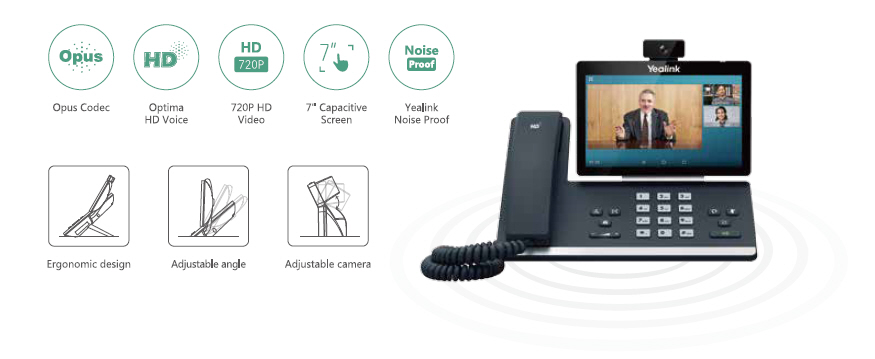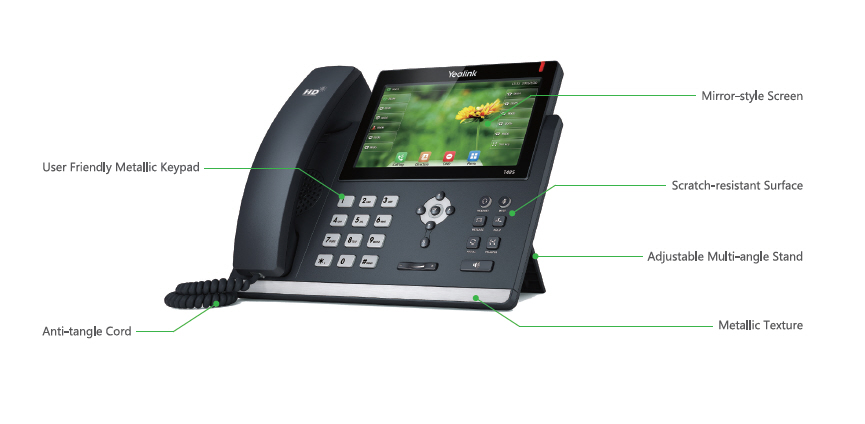Introduction
In today's fast-paced business environment, communication is more crucial than ever. The shift from traditional phone systems to Voice over Internet Protocol (VoIP) phone systems has revolutionized how businesses operate. But what exactly should you look for when choosing a VoIP phone system? This article will delve into the key features to look for in a VoIP phone system, ensuring that you make an informed decision that aligns with your business needs.
Understanding VoIP Technology
Before diving into the specific features of VoIP phone systems, it’s essential to grasp what VoIP technology entails. Essentially, VoIP allows you to make voice calls using the internet rather than a traditional telephone line. This fundamental shift not only enhances communication efficiency but also offers numerous benefits like cost savings, flexibility, and scalability.
What Makes VoIP Different?
Unlike traditional Public Switched Telephone Networks (PSTN), which rely on physical lines and circuits, VoIP converts voice signals into digital data packets. These packets are transmitted over the internet and converted back to audio at the receiving end. This process allows for more efficient data handling and reduced costs.
Key Features to Look For in a VoIP Phone System
When evaluating different VoIP phone systems, there are several key features that can significantly impact your user experience and operational efficiency. Let's explore these crucial aspects:
1. Call Quality and Reliability
One of the most critical factors when selecting a VoIP phone system is call quality and reliability. Poor call quality can lead to misunderstandings and frustrate both employees and customers alike.
- High Definition Voice: Look for systems that support HD voice technology. Bandwidth Management: Ensure the provider offers Quality of Service (QoS) settings.
2. Cost-Effectiveness
Cost is often a primary deciding factor for many businesses when considering a new phone system.
- Pricing Structure: Investigate whether your provider charges per user or provides flat-rate pricing. Hidden Fees: Be mindful of potential hidden costs related to setup or maintenance.
3. Scalability Options
As businesses grow, their communication needs evolve as well. A scalable VoIP system can adapt to these changes seamlessly.
- User Additions: Check if you can easily add or remove users without significant downtime. Feature Expansion: Consider whether additional features come at an extra cost.
4. User-Friendly Interface
A complicated user interface can hinder productivity rather than enhance it.
- Dashboard Functionality: Look for intuitive dashboards that allow easy navigation. Mobile Compatibility: Ensure the platform is mobile-friendly for remote work capabilities.
5. Advanced Features
While basic calling functions are vital, advanced features can set one system apart from another.
- Call Forwarding & Transfer: Essential for managing incoming calls efficiently. Voicemail-to-Email: A feature that converts voicemails into emails for easier access.
Exploring Additional Key Features
Beyond the basics discussed earlier, there are several additional features worth considering when evaluating different VoIP phone systems:
6. Integration Capabilities
Your chosen phone system should ideally integrate seamlessly with other tools your business uses daily.
- CRM Software Integration: Many modern VoIP solutions integrate smoothly with customer relationship management software.
7. Security Measures
With cyber threats on the rise, securing your communications is paramount.
- Encryption Protocols: Ensure your provider employs encryption strategies like SRTP or TLS.
Tables of Key Features
To help summarize these key features visually, here’s a table outlining them:
| Feature | Importance https://soundcurve.com/voip-phone-service-encino-ca/ | |--------------------------------|---------------------------------------------------| | Call Quality | Ensures clear communication | | Cost Effectiveness | Reduces overhead expenses | | Scalability | Supports growth without disruption | | User-Friendly Interface | Enhances productivity | | Advanced Features | Offers enhanced functionality | | Integration Capabilities | Streamlines workflow | | Security Measures | Protects sensitive information |
FAQs about VoIP Phone Systems
What is a VoIP Phone System?- A VoIP phone system uses the internet to transmit voice calls instead of traditional telephone lines.
- High-quality VoIP systems often provide superior sound clarity due to advanced encoding techniques.
- Many providers offer adapters that allow existing analog phones to work with their service.
- Yes, high-speed internet is crucial for ensuring clear calls without interruptions or delays.
- Most providers offer failover options that reroute calls through cellular networks during outages.
- Some providers may require contracts while others operate on flexible month-to-month terms; always read the fine print!
Conclusion
Choosing a suitable VoIP phone system requires careful consideration of various factors—including call quality, cost-effectiveness, scalability options, user-friendliness, advanced features, integration capabilities, and security measures—this list isn’t exhaustive but serves as a solid foundation upon which you can build your evaluation process. By understanding these key features to look for in a VoIP phone system, you'll be better equipped to select one that meets your business needs effectively and efficiently.
In summary, investing time in research will pay dividends in establishing reliable communication channels within your organization! So go ahead—get out there and find the perfect solution tailored just for you!


